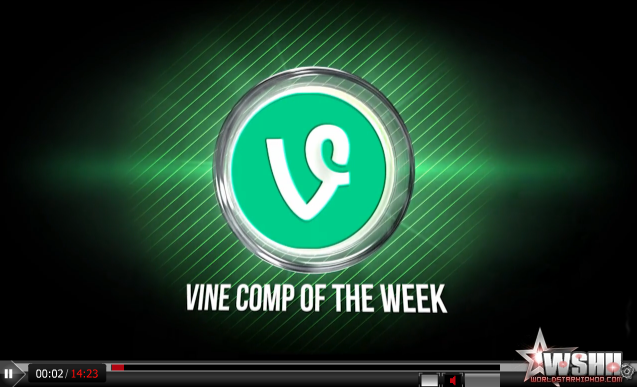The People's Platform
Black Vine is simply Vine, inescapable for anyone looking to really really engage with the platform.
by Jeff Ihaza

For roughly a hundred and twenty-five weeks, Worldstarhiphop.com — or WORLDSTARRRR!! as it’s known to anyone who’s been in a fight — has aggregated the best Vines into fifteen-minute blocks of video. These compilations, or “comps,” offer episodic glimpses into very time-specific moments in culture. Last week, the popular “What are thoooooose?!” meme was featured in its finest form: An elementary schooler calmly sets down his lunch bag, rubs his hands together and in complete, high-pitched glory, declares, “What are thooooose!” while pointing to another tiny classmate’s tiny shoes. It’s moments like these — comedically banal skits from everyday life — that thrive on Vine and make compiling the week’s best an obvious extension of the medium.
Vine, which was acquired by Twitter before it even launched in 2013, offers a uniquely democratic platform for everyday people to display whatever they want. The result is something like a never-ending Snapchat story from every person in the world, at once overwhelming and inviting, that captivates viewers with infinitely looping bits of ephemera that vary from the hyper-relatable, like culturally-specific jokes about parents, to deeply upsetting fight and prank videos.
That organizing and filing all of this cultural data falls to World Star is a testament to the site’s unique position as the internet’s de facto repository for absurd videos. Run by Queens native Lee “Q” O’Denat — who described his enterprise to The Verge as “sort of like cable television” — WSHH primarily functions as a video aggregator, pulling the internet’s strangest, and often most crude, videos and serving them up in one centralized destination.
The first World Star Vine Comp was released a few months after the app’s launch. At the time, the episodes were much shorter, averaging about five minutes. They spoke to the platform’s earlier, more immediate, often slapstick-style of humor, too; Vine Comp no. 1 features a clip of a toddler getting twerked on. These early compilations also had a perhaps unintended effect of authentically preserving a moment in time: The summer of 2013 was the summer of Miley Cyrus’ twerk-gate, and twerking remains a fixture in compilations to this day, with twerk Vines set to trending club hits making for oddly perfect video bookends in the new, hyper-visual and (sort of) sexually liberated internet.
Vine Compilation no. 123 features a high school teacher dancing to Nicki Minaj, a meme about trying to put on fitted sheets (it’s impossible), an animation likening Bill Cosby to a fighting game character whose special attack involves quaalude Hadoukens (ugh), and a gang fight involving baseball bats. This is the content mix viewers have come to expect, a mix most representative of real life filtered through the internet, for better or worse. Unlike YouTube, whose video sensations skew white and “dreamy,” some of Vine’s most effective users are often minorities, specifically black users, making the platform far more representative of culture than its intensely whitewashed counterparts.
This isn’t to say that the most “successful” users on the platform are minorities. In fact, according to Niche, a service that works sort of like Linkedin for viral celebrities, the majority of the most followed Vine accounts belong to white kids who look like members of a failed One Direction spinoff, aka fuckbois. Still, the cultural capital exchanged on Vine — dances, memes and expressions like “ayyy” — originate with the app’s black users. That the majority of the app’s black creators are shut out from the new celebrity status created on Vine is the entertainment industry’s systemic discrimination played out in a new sphere, which makes sense considering who the fuckboi Vine stars cater to: middle-class teenage white girls.
Still, while “Black YouTube” isn’t a thing, and “Black Twitter” exists as a nebulous idea that somehow involves Piers Morgan, Black Vine is simply Vine, inescapable for anyone looking to really really engage with the platform. The app’s format lends itself perfectly to hip hop, too. The six second loops put rhythm at center stage and as Hannah Giorgis says in The Guardian, “Blackness thrives rhythmically, and Vine puts that percussive precision on infinite loop.”
This makes sense given the rash of hip-hop hits to surface through the platform. Songs like Silento’s massive “Watch Me (Whip/Nae Nae),” or Bobby Shmurda’s “Hot Nigga” play both to hip-hop’s affinity for hooks and Vine’s repetitive hypnosis. Most of the songs to emerge on Vine are one hit wonders, sure, but they’re also unrelenting in their ubiquity. There are thousands of “whip” compilations on YouTube, as well as instructionals, parodies and every other form of online re-purposing imaginable. Bobby Shmurda might even be a major force in rap music today, were it not for the accuracy of his hit single’s lyrics.
World Star Hip Hop occupies the ground floor of this social video culture, making mini-celebrities out of kids like WelvenDaGreat, whose “Deez Nuts” meme has managed to generate a modest bit of fame, or Lil Terrio, whose “Ooo kill ‘em” video spawned a maddeningly extensive series of spinoffs. World Star’s compilations afford cultural capital to traditionally marginalized voices by amplifying their work where the platforms themselves won’t. The content creators who thrive on WSHH are, in a lot of ways, models of what companies like Vine tout in press releases: On World Star, you can become a viral celebrity even if you don’t have a name like “Skylar” or “Connor,” making the still-often despicable site the closest we’ve come to the utopian platform we’ve always hoped for.
